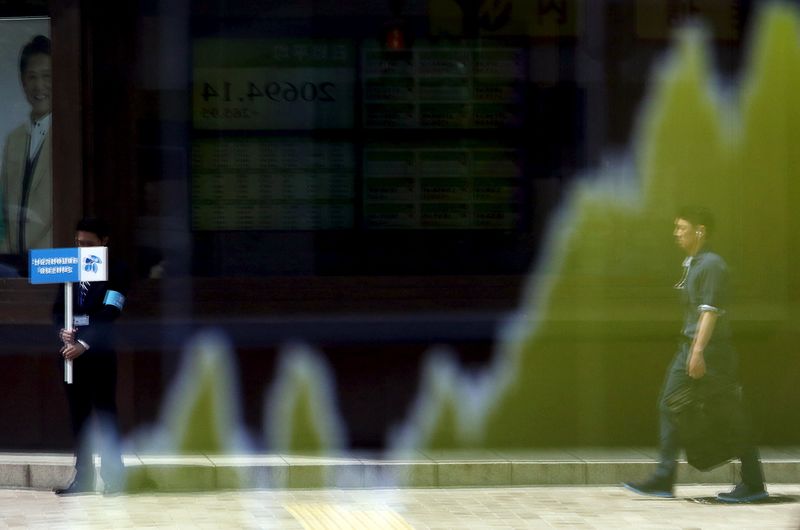Investing.com’s stocks of the week
Investing.com-- Most Asian stocks rose on Wednesday as soft U.S. inflation data furthered expectations that the Federal Reserve will pause its rate hike cycle later in the day, with Japan’s Nikkei clearing fresh 33-year highs.
An interest rate cut in China- the country’s first in 10 months- also bolstered hopes that Beijing will keep rolling out supportive measures to spruce up an economic recovery this year.
But gains in most Asian markets were relatively limited, as investors still remained wary of any hawkish surprises from the Fed. While U.S. inflation eased as expected in May, it still remained well above the Fed’s annual target range.
Japanese stocks outperform, dovish BOJ in sight
Japan’s Nikkei 225 index and TOPIX were the best performers for the day, up 1% and 0.9%, respectively. Both indexes were also at 33-year highs.
Sentiment towards local stocks was largely supported by expectations that the Bank of Japan will maintain its ultra-loose policy this Friday. This, coupled with some signs of resilience in the Japanese economy and a strong first-quarter earnings season, saw Japanese markets vastly outperform their regional peers over the past two months.
Strength in heavyweight technology stocks also supported Japanese markets, amid bets on a Fed pause and as optimism over a potential artificial intelligence boom drove renewed flows into the sector.
Broader Asian markets advanced, as markets bet that the Fed will pause its rate hike cycle later in the day, easing some pressure faced by regional stocks due to high U.S. interest rates.
Malaysian stocks rose 0.3%, while Singapore-traded Nifty 50 Futures pointed to a positive open for Indian stocks.
A strong overnight finish on Wall Street also provided some support to Asian markets.
China rate cut offers some support, but economic concerns persist
China’s Shanghai Shenzhen CSI 300 and Shanghai Composite indexes rose 0.4% and 0.1%, respectively, after the People’s Bank of China trimmed a short-term interest rate on Tuesday.
The move was largely anticipated by markets, given that several state-owned banks had begun trimming rates on yuan deposits over the past week.
But the move also raised concerns over just how deep Chinese economic cracks ran after three years of COVID lockdowns. As such, increases in Chinese and China-exposed stocks remained limited, after local stocks wiped out all gains made this year.
Hong Kong’s Hang Seng index fell 0.2%, while Australia’s ASX 200 rose 0.3%.
South Korea’s KOSPI fell 0.3%, while the Taiwan Weighted index lost 0.1%.
